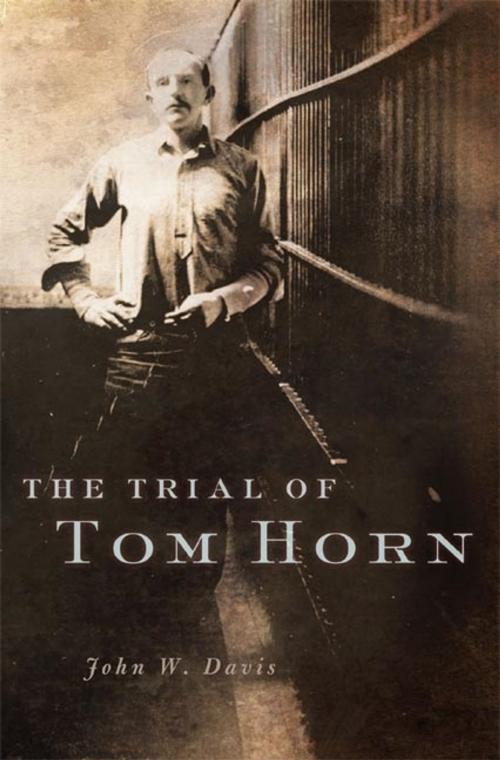| Author: | John W. Davis | ISBN: | 9780806154541 |
| Publisher: | University of Oklahoma Press | Publication: | March 31, 2016 |
| Imprint: | University of Oklahoma Press | Language: | English |
| Author: | John W. Davis |
| ISBN: | 9780806154541 |
| Publisher: | University of Oklahoma Press |
| Publication: | March 31, 2016 |
| Imprint: | University of Oklahoma Press |
| Language: | English |
For weeks in 1902 it commanded headlines. All of Wyoming and much of the West followed the trial of Tom Horn for the murder of a fourteen-year-old boy. John W. Davis’s book, the only full-length account of the trial, places it in perspective as part of a larger struggle for control of Wyoming’s grazing land. Davis also portrays an enigmatic defendant who, more than a century after his conviction and hanging, perplexes us still.
Tom Horn was one of the most fascinating figures in the history of the West. Employed as a Pinkerton and then as a range detective, he had a reputation as a loner and a braggart with a brutal approach to law enforcement even before he was accused of murdering young Willie Nickell. Cattlemen saw Horn as protecting their way of life, but most people in Wyoming saw him as a hired assassin, an instrument of oppression by cattle barons willing to use violent intimidation to protect their assets.
The story began on July 18, 1901, when Willie Nickell was shot by a gunman lying in ambush; the killer was apparently after Willie’s father, who had brought sheep into the area. Six months later Tom Horn was arrested. The trial pitted the Laramie County district attorney against a crack team of defense lawyers hired by big cattlemen. Against all predictions, the jury found Horn guilty of first-degree murder. Despite appeals that went all the way to the state supreme court and the governor, Horn was hanged in Cheyenne in 1903.
The trial and conviction of Tom Horn marked a major milestone in the hard-fought battle against vigilantism in Wyoming. Davis, himself a trial lawyer, has mined court documents and newspaper articles to dissect the trial strategies of the participating attorneys. His detailed account illuminates a larger narrative of conflict between the power of wealth and the forces of law and order in the West.
For weeks in 1902 it commanded headlines. All of Wyoming and much of the West followed the trial of Tom Horn for the murder of a fourteen-year-old boy. John W. Davis’s book, the only full-length account of the trial, places it in perspective as part of a larger struggle for control of Wyoming’s grazing land. Davis also portrays an enigmatic defendant who, more than a century after his conviction and hanging, perplexes us still.
Tom Horn was one of the most fascinating figures in the history of the West. Employed as a Pinkerton and then as a range detective, he had a reputation as a loner and a braggart with a brutal approach to law enforcement even before he was accused of murdering young Willie Nickell. Cattlemen saw Horn as protecting their way of life, but most people in Wyoming saw him as a hired assassin, an instrument of oppression by cattle barons willing to use violent intimidation to protect their assets.
The story began on July 18, 1901, when Willie Nickell was shot by a gunman lying in ambush; the killer was apparently after Willie’s father, who had brought sheep into the area. Six months later Tom Horn was arrested. The trial pitted the Laramie County district attorney against a crack team of defense lawyers hired by big cattlemen. Against all predictions, the jury found Horn guilty of first-degree murder. Despite appeals that went all the way to the state supreme court and the governor, Horn was hanged in Cheyenne in 1903.
The trial and conviction of Tom Horn marked a major milestone in the hard-fought battle against vigilantism in Wyoming. Davis, himself a trial lawyer, has mined court documents and newspaper articles to dissect the trial strategies of the participating attorneys. His detailed account illuminates a larger narrative of conflict between the power of wealth and the forces of law and order in the West.















